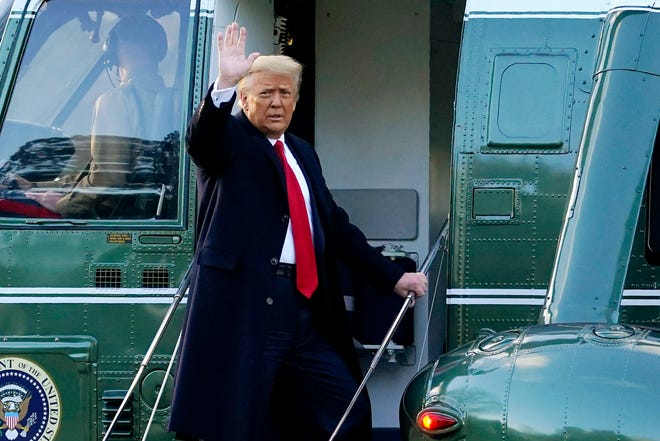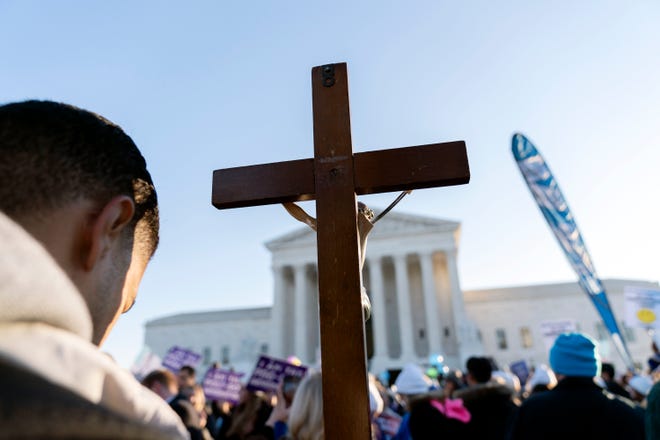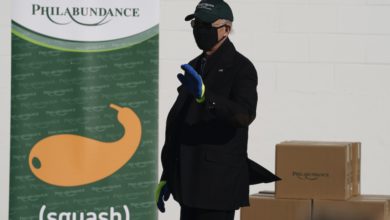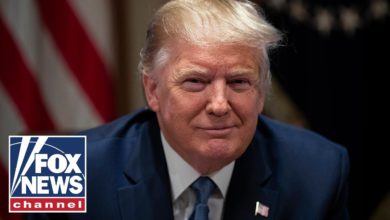
WASHINGTON – The Supreme Court on Monday refused to intercede in a long-running legal fight between former President Donald Trump and the Manhattan district attorney, clearing the way for New York City prosecutors who are investigating Trump and his company to enforce a grand jury subpoena for his tax records.
The development is a brutal defeat for the former president. Trump has dismissed the Manhattan prosecutors' investigation as a political "witch hunt" and has fought all the way to the high court to keep his tax returns under wraps.
Because of the secrecy of grand jury proceedings, the decision does not mean Trump's financial records will become public.
This is the second time Trump has asked the Supreme Court to protect his financial documents from disclosure to prosecutors. Last summer, the high court rejected Trump's claims that he is absolutely immune from criminal investigations while in office but sent the case back to lower courts to resolve other legal issues.

Manhattan District Attorney Cyrus Vance's office subpoenaed several years of Trump's tax returns and financial documents as part of an investigation into alleged hush-money payments made during the 2016 presidential race. Vance's office indicated that prosecutors are also looking more broadly at possible criminal activity at the Trump Organization.
Trump's attorneys asked the high court to again intervene in the case after losing the legal battles in lower courts. The U.S. Court of Appeals for the 2nd Circuit ruled in early October that Trump's accountant, Mazars USA, must comply with the subpoena, rejecting Trump's additional claims that it was too broad and was issued in bad faith to harass him.
The appeals court kept a stay in its decision in place while Trump appealed to the Supreme Court.
In court papers asking the high court to intervene, Trump's attorneys cited concerns that the subpoena, which makes "sweeping demands" and is identical to one issued by Congress, "crosses the line – even were it aimed at some other citizen instead of the President."
Trump's attorney, William Consovoy, said his financial records have been the subject of political interest, repeatedly calling out Vance for issuing a word-for-word copy of a subpoena issued by House Democrats during the previous session of Congress.
"The result is a sweeping subpoena to Mazars for all financial papers related to every facet of the business and financial affairs of the President and numerous entities reaching back nearly a decade," Consovoy wrote.
Consovoy argued that despite the secrecy of grand jury proceedings, there are other ways in which Trump's financial records may be made public, such as disclosures as part of an indictment or a grand jury report.
Carey Dunne, counsel for Vance, said in court papers that Trump's claim that the subpoena was overly broad confuses the actual scope of the investigation, and his attorneys have been unable to show that prosecutors had "an illicit purpose."
Legal battle over Trump's tax returns:2nd Circuit appeals court declines – for now – to block ruling requiring disclosure of Trump's tax returns
Dunne said Trump's attorneys have said, incorrectly, that the grand jury investigation are limited to payments that Michael Cohen, Trump's former personal attorney, facilitated to silence two women who claimed to have had affairs with Trump. Trump has denied the affairs.
"The obvious explanation for the subpoena's breadth ... is that the investigation had extended beyond the Cohen payments," Dunne wrote, adding that complex financial investigations typically involve several interrelated corporate entities.

The subpoena seeks tax returns, financial statements, engagement letters, underlying support for financial statements and working papers from various entities Trump owned beginning in 2011.
Dunne also rejected claims that the subpoena was politically motivated, arguing that grand jury secrecy laws would prevent any politicians from viewing the subpoenaed documents.
In its 35-page opinion, the 2nd Circuit sided with Manhattan prosecutors, saying that grand juries "must necessarily paint a broad brush" when issuing subpoenas.
"Similarly, the President's allegations of bad faith fail to raise a plausible inference that the subpoena was issued out of malice or intent to harass," the court said.
Source link










